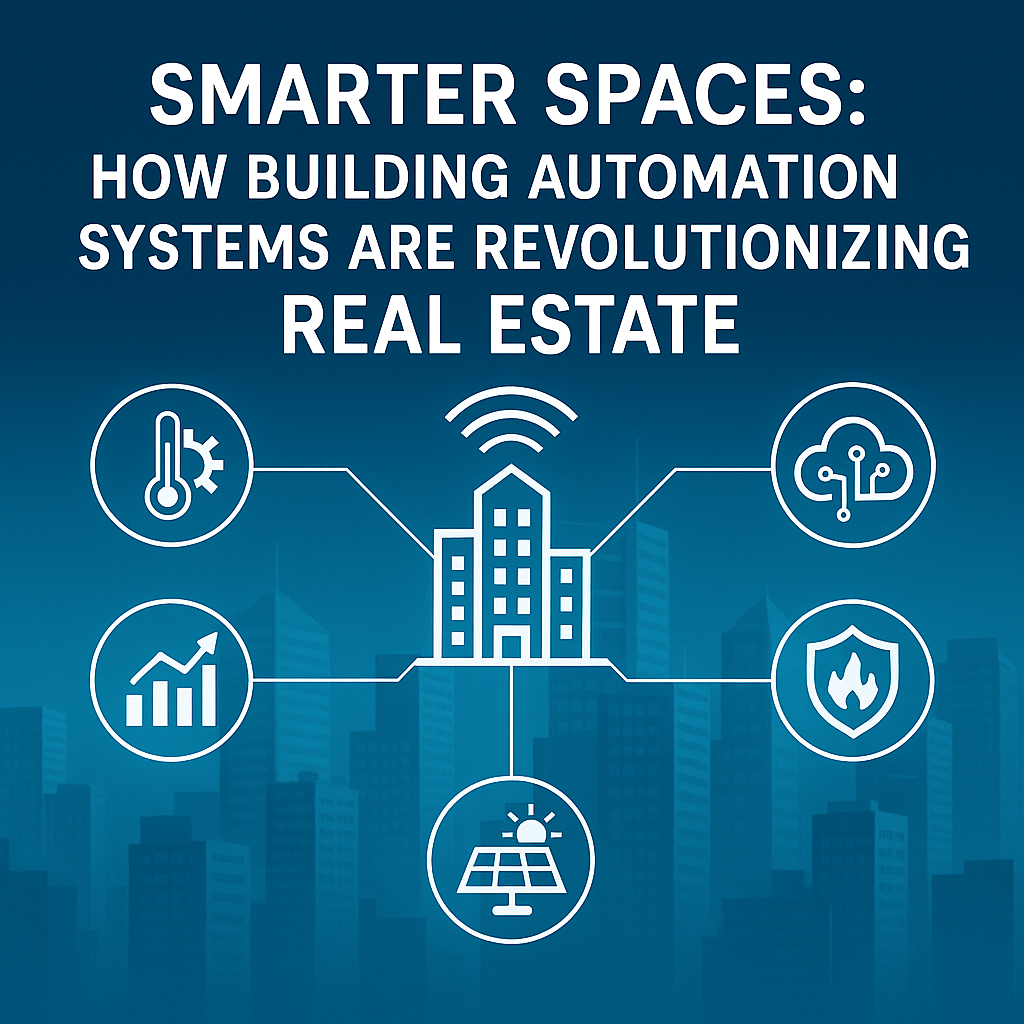In today’s fast-paced and tech-driven world, the demand for smarter, more efficient buildings is higher than ever. Building Automation Systems (BAS) are emerging as the backbone of modern real estate—creating seamless experiences for occupants while maximizing operational efficiency for owners and developers. But what exactly are Building Automation Systems, and why are they becoming essential in shaping the future of real estate? What Is a Building Automation System? A Building Automation System is a centralized network of hardware and software that monitors and controls a building's mechanical and electrical systems—such as HVAC, lighting, power, fire, and security. By integrating these systems into a single interface, BAS provides real-time monitoring, automation, and data analysis to improve building performance. Why Real Estate Developers Are Turning to BAS
1. Energy Efficiency & Cost Savings BAS dramatically reduces energy consumption by intelligently managing lighting, temperature, and ventilation based on occupancy and usage patterns. These efficiencies translate into significant cost savings over time—an attractive proposition for developers and building owners alike.
2. Enhanced Tenant Comfort & Productivity By maintaining optimal indoor conditions, BAS contributes to better comfort and well-being for occupants. Smart lighting and temperature control create a more pleasant environment, which can lead to higher productivity in commercial settings and satisfaction in residential spaces.
3. Centralized Control and Remote Access Developers and facility managers can monitor multiple properties from a single dashboard, making it easier to detect issues early and respond swiftly. Remote access allows control from anywhere, offering convenience and operational continuity.
4. Increased Property Value and Marketability Smart buildings are in demand. Properties equipped with modern BAS command higher rents and resale values, giving developers a competitive edge in the market.
5. Sustainability and Compliance With growing environmental concerns and stricter regulations, sustainability is no longer optional. BAS helps buildings meet green certifications like LEED and WELL by optimizing energy use, reducing waste, and supporting renewable energy integration.
<b>Use Case:</b> A Smart Mixed-Use Development Imagine a mixed-use development where commercial offices, retail spaces, and residential units are managed through a single, integrated system. The lighting dims automatically after hours, HVAC adjusts based on real-time occupancy data, and energy reports are generated weekly to guide better decision-making. This is not just possible—it’s happening now. The Bottom Line Building Automation Systems are no longer a luxury—they’re a necessity for future-ready real estate. By embracing BAS, developers not only create more sustainable and cost-effective buildings, but they also meet the evolving expectations of tech-savvy tenants and investors. In a world where innovation, safety, and sustainability intersect, BAS is the key to unlocking smarter spaces.
Smarter Spaces: How Building Automation Systems Are Revolutionizing Real Estate

